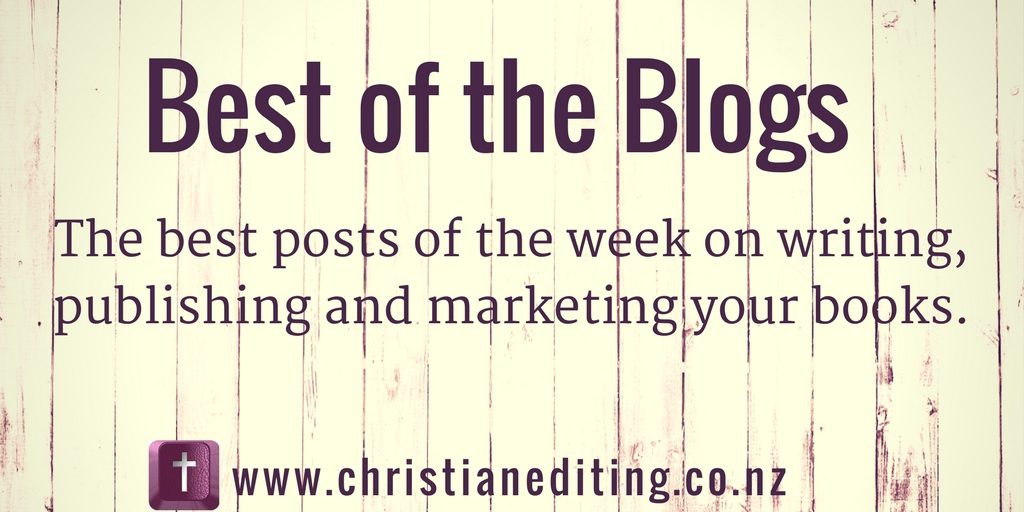I haven’t posted for the last two weeks (did you notice?). The first weekend, I was attending the Romance Writers of New Zealand conference, listening to awesome speakers like Kristen Lamb and Christie Craig.
Kristen Lamb shared lots of great tips about developing an author platform and using social media, and I blogged about that at Australasian Christian Writers (click here to read my post). Christie Craig was a brilliant combination of writing craft, humour, and inspiration. I’ve got a guest post on her presentation coming up in a couple of weeks at International Christian Fiction Writers, so I’ll link to that when it posts.
Then last weekend my husband took me away for long weekend to celebrate my birthday. We visited the South Island—Queenstown, Arrowtown, and Wakaka, and visited several Lord of the Rings filming locations. Not that any of you like #LOTR …
Anyway, let’s get back to what’s been going on in the writing world this week.
Publishing
YA Author Caught Manipulating the NYT Bestseller List
There have been several stories over the years of authors buying bulk copies of their books to gain a place on the prestigious (or is that once-prestigious) New York Times Bestseller list. The most famous (infamous?) in Christian circles is probably Mark Driscoll, but he is not alone.
The latest story is about YA author Lani Sarem and her YA novel, Handbook for Mortals. Despite being published by a miniscule publisher, with no preorder buzz, and out of stock on Amazon, the book somehow managed to make it to the top of the NYT Young Adult Hardcover list. This struck some YA blogger types as odd, so they did a little investigation.
To cut a long story short, they found someone (the author?) had manipulated the list by contacting bookstores which report to the NYT and ordering 29 copies (because orders of 30 or more copies trigger a warning that the book is being purchased in bulk). It appears these orders counted as sales, even though the book wasn’t delivered or paid for.
Good on the New York Times for doing their own research and revising the list.
How to Self-Publish
Self-Publishing Mastery is a free online course from Ian Robb Wright, run through Teachable. I’ve signed up, but haven’t completed it myself. David Gaughran has checked it out, and says while there is an upsell at the beginning, it’s only USD 28, and the rest of the course looks like it contains good solid content with no sales pitches. So if you’re looking to find out about self-publishing, this could be a good place to start.
Ebook Formatting
Draft2Digital have introduced professional ebook templates for epub and mobi files. This provides self-published authors with an alternative to the dreaded Smashwords meatgrinder, or the other options like Scrivener (which I can’t get the hang of), Vellum (which I can’t use, because I don’t use a Mac), and Joel Friedlander’s Book Design Templates (which I do like, but you have to buy them).
You can find out more at the Draft2Digital blog. How do you format your ebooks? Will you try the Draft2Digital templates?
Developmental Editing
I have a lot of potential clients approach me asking for copyediting and proofreading, but when I look at their manuscript, it becomes obvious their novels are not ready for copyediting. They need more work. They need a developmental edit. In Five Reasons Your Novel Needs a Developmental Edit, Jonathan Vars shares what a developmental edit should cover.
Writing
Free Story Genius Webinar
One of my favourite writing craft books is Story Genius by Lisa Cron. Lisa has teamed up with writing coach Jeannie Nash at Author Accelerator to offer an exclusive webinar next week on Thursday 7 September/Friday 8 September (it’s 10:30am Thursday Pacific Time, which unfortunately translates as 5:30 am Friday for me in New Zealand).
I expect there will be a sales pitch for Author Accelerator’s Story Genius training course, but I’m sure there will be lots of great content as well. It’s free, and there will be a replay (for those Australians who aren’t prepared to get up at 3:30am).
Writing Agathokakological Stories
Finally, Telling the Truth in Fiction shares some inspiration from Steven James, on why our stories must be agathokakological … telling good and evil. What James doesn’t say is that in order to tell the truth in fiction, we must know The Truth (which he does). That’s our role as Christian authors, no matter who our audience is.

